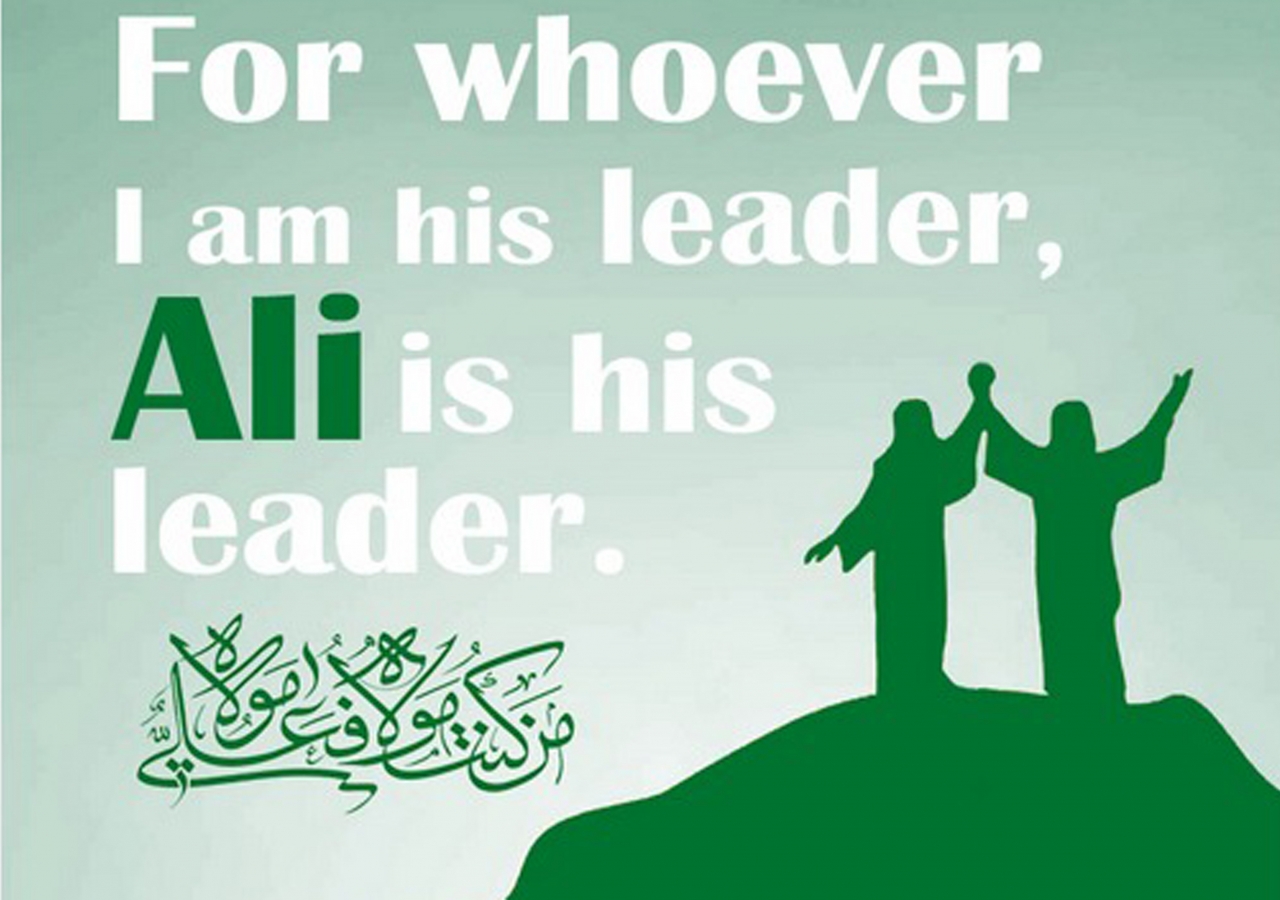O Believers, may God help you in deriving the fullest benefit from the glories of this day. It was on this day that God had conferred on us the highest of His favours. It was on this day that God issued a great ordinance, which is the terminating point in the revelation of the religious laws. It was on this day that everything was made clear and the path was made smooth for the seekers of truth by the verse of the Qur'an “I have perfected your religion. I have bestowed on you, My highest favours. I have chosen for you Islam as a religion”. (Q. 5:3) At first the Prophet was reluctant to proclaim the ordinance to the people who he believed were prejudiced against it. A Qur’anic verse made the matter clear and left no room of hesitation in his mind. The verse is as follows: “O the Prophet, deliver the message which has been revealed to you by your Lord. If you failed to do so it will mean that you have not delivered His message to the people. God will guard you against the people”. (Q. 5:67)
There is no sect in Islam which believes that the Prophet failed short of delivering the message of God in such matters as the performance of prayers, the payment of “zakat”*, the fasting or going on pilgrimage or taking part in the “jihad”*. We know well that he exercised his utmost in making the people offer the prayers, which one cannot perform without undergoing some physical discomfort. He preached to the people to pay zakat and the people did pay, although one does not find it easy to part with money. The people were made to fast and we know well that in fasting one has to put up with unbearable hunger and thirst. He exhorted the people to go on pilgrimage, which one cannot undertake without undergoing all sorts of hardships. He ordered the people to join the “jihad” and they did so at the risk of their lives. In short, he made no hesitation in the delivering of God's message in these matters. It was only the question of “Wilaya”*, which worried him the most. It was the ordinance pertaining to the Wilaya, the allegiance to Ali and the Imams from amongst his descendants that he was not prepared to proclaim. Finding the people burning with hatred and jealousy he hesitated to deliver this ordinance to them and he was waiting for a favourable time when the above verses were revealed to clear his doubts.
These verses which lay emphasis on the delivery of the ordinance prove to us that the faith in the Wilaya is the cornerstone of our religion. If one does not believe in the Wilaya and discharges all the primary and secondary duties enjoined on us by our religion, the performance of these duties will not help him in the least. His good deeds minus the belief in the Wilaya will lead him to no other place than hell-fire. Belief in the Wilaya of the Prophet is a pivot. On this hinges the whole system of our religious laws. If one has no faith in the Wilaya, the duties laid down in our religion will lose the force of application on him. Hence, the performance or non-performance of these duties will make no difference in his case. It must be borne in mind that after the death of the Prophet the belief in the Wilaya of the Imams from his progeny is as important a part of our religion as the belief in the Wilaya of the Prophet in his lifetime. If someone were to suggest that the Prophet was not hesitant to deliver this ordinance, this stand will make the revelation of the above verse meaningless and superfluous.
This is supported by the Tradition according to which the Prophet is reported to have said at Ghadir Khum, “Am I not more precious to you than your own-selves?” This is an echo of the Qur'anic verse which says, “The Prophet is more dear to the believers than their own selves to them”. It is said that in response to this question by the Prophet, when the believers said, “Yes, you are dearer to us than our own lives”, the Prophet said, “O God, be witness to their admission”. After this he said, “Ali is the master of one who acknowledges me to be his master. O God love those who love Ali. Help those who help Ali. Desert those who desert Ali. Let the truth accompany Ali wherever he goes”.
[* "Ghadir” = Ghadir Khumm is the place where the Prophet Muhammad proclaimed Ali publicly as his successor; “Zakat” = mandatory payments for charity; “Jihad” = struggle for a good cause; it can be in times of peace or in war; “Wilaya” or “walaya” = the Authority of the Imam which requires loyalty, allegiance and devotion to him]







